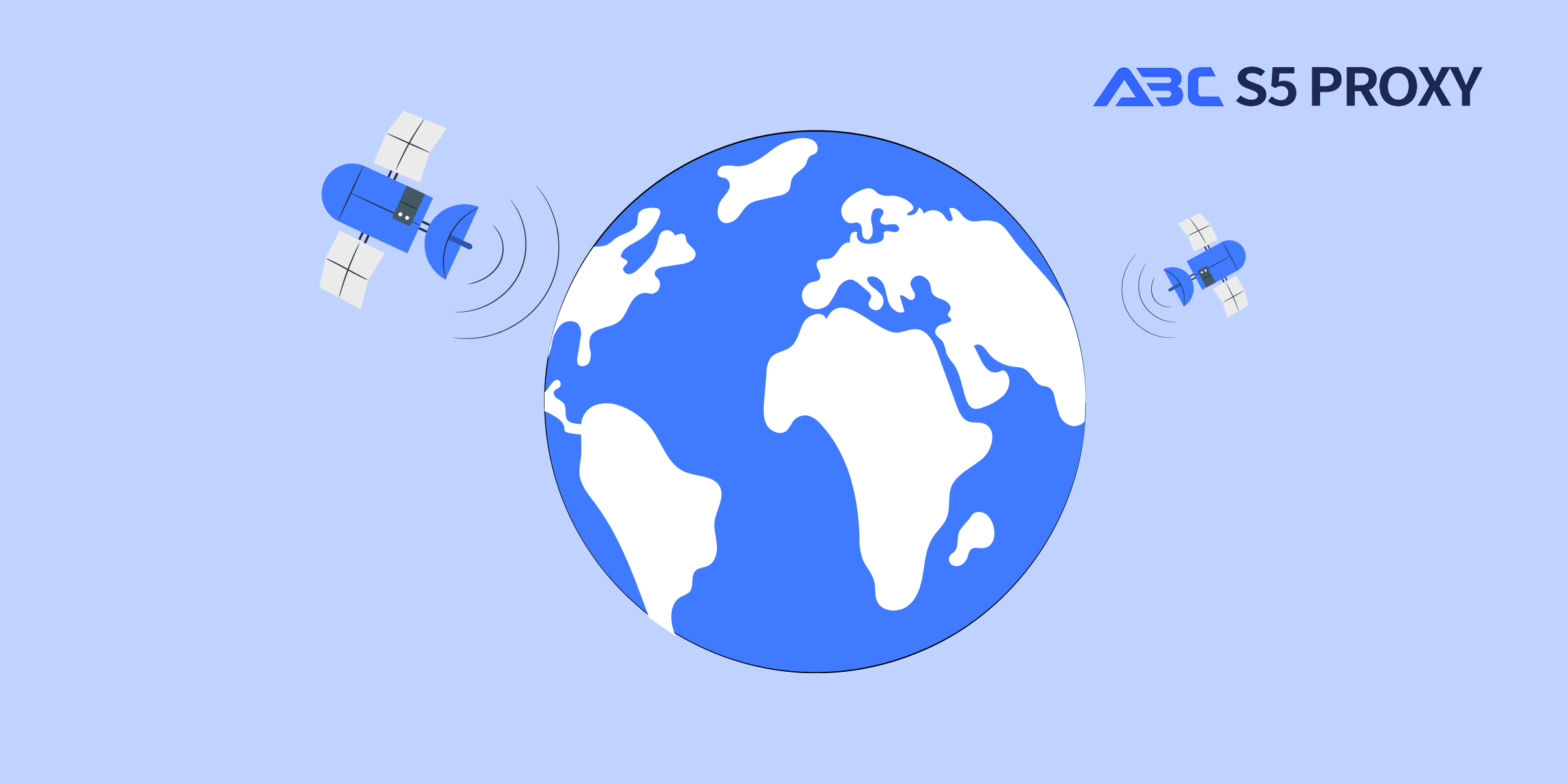Residential Proxies
Allowlisted 200M+ IPs from real ISP. Managed/obtained proxies via dashboard.

Proxies
Residential Proxies
Allowlisted 200M+ IPs from real ISP. Managed/obtained proxies via dashboard.
Residential (Socks5) Proxies
Over 200 million real IPs in 190+ locations,
Unlimited Residential Proxies
Use stable, fast, and furious 700K+ datacenter IPs worldwide.
Static Residential proxies
Long-lasting dedicated proxy, non-rotating residential proxy
Dedicated Datacenter Proxies
Use stable, fast, and furious 700K+ datacenter IPs worldwide.

Web Unblocker
View content as a real user with the help of ABC proxy's dynamic fingerprinting technology.
Proxies
API
Proxy list is generated through an API link and applied to compatible programs after whitelist IP authorization
User+Pass Auth
Create credential freely and use rotating proxies on any device or software without allowlisting IP
Proxy Manager
Manage all proxies using APM interface

Proxies
Residential Proxies
Allowlisted 200M+ IPs from real ISP. Managed/obtained proxies via dashboard.
Starts from
$0.77/ GB
Residential (Socks5) Proxies
Over 200 million real IPs in 190+ locations,
Starts from
$0.045/ IP
Unlimited Residential Proxies
Use stable, fast, and furious 700K+ datacenter IPs worldwide.
Starts from
$79/ Day
Rotating ISP Proxies
ABCProxy's Rotating ISP Proxies guarantee long session time.
Starts from
$0.77/ GB
Static Residential proxies
Long-lasting dedicated proxy, non-rotating residential proxy
Starts from
$5/MONTH
Dedicated Datacenter Proxies
Use stable, fast, and furious 700K+ datacenter IPs worldwide.
Starts from
$4.5/MONTH
Knowledge Base
English
繁體中文
Русский
Indonesia
Português
Español
بالعربية

Understanding Online Restrictions
In today's digital age, the internet has become an essential part of our daily lives. We rely on it for communication, information, entertainment, and much more. However, with the increasing use of the internet, various online restrictions have also become a common issue. Understanding these online restrictions is crucial to navigate the digital world effectively and protect our online presence. In this blog post, we will delve into the topic of online restrictions, explore the reasons behind them, and discuss how individuals can overcome or work around them.
Online restrictions refer to limitations or barriers imposed on internet users that restrict their access to certain websites, content, or online services. These restrictions can be implemented by governments, internet service providers (ISPs), schools, workplaces, or even by the websites themselves. Common forms of online restrictions include geo-blocking, content censorship, network restrictions, and bandwidth throttling.
There are several reasons why online restrictions are put in place:
1. **Geo-Political Reasons**: Certain countries enforce online restrictions to control the flow of information, suppress dissent, or protect national security interests.
2. **Copyright Protection**: Content providers may restrict access to their content in certain regions to enforce copyright laws and licensing agreements.
3. **Security Concerns**: Online restrictions are sometimes implemented to protect users from malicious websites, phishing attacks, or malware.
4. **Network Management**: ISPs may impose restrictions to manage network congestion, prevent bandwidth abuse, or comply with regulatory requirements.
Despite online restrictions, there are ways for individuals to bypass or mitigate these limitations:
1. **Use a Proxy Server**: Proxy servers can act as intermediaries between users and the internet, allowing users to access blocked content by masking their IP addresses.
2. **Tor Browser**: The Tor network allows users to browse the internet anonymously by directing internet traffic through a series of relays.
3. **Browser Extensions**: Certain browser extensions can help bypass geo-restrictions and access region-locked content.
4. **Seek Alternative Websites or Services**: If a website or service is blocked, users can look for alternative platforms that offer similar content or services.
In conclusion, online restrictions are a common challenge faced by internet users worldwide. By understanding the reasons behind these restrictions and knowing how to navigate them effectively, individuals can continue to enjoy a free and open internet experience. Whether it's using proxy servers or seeking alternative services, there are ways to overcome online restrictions and access the content and services you need. Stay informed, stay safe, and make the most out of your online experience.
Featured Posts
Popular Products
Residential Proxies
Allowlisted 200M+ IPs from real ISP. Managed/obtained proxies via dashboard.
Residential (Socks5) Proxies
Over 200 million real IPs in 190+ locations,
Unlimited Residential Proxies
Use stable, fast, and furious 700K+ datacenter IPs worldwide.
Rotating ISP Proxies
ABCProxy's Rotating ISP Proxies guarantee long session time.
Residential (Socks5) Proxies
Long-lasting dedicated proxy, non-rotating residential proxy
Dedicated Datacenter Proxies
Use stable, fast, and furious 700K+ datacenter IPs worldwide.
Web Unblocker
View content as a real user with the help of ABC proxy's dynamic fingerprinting technology.
Related articles

Mastering Online Restrictions: Unlocking a World of Possibilities
Enhance your knowledge of online restrictions with our informative blog. Discover how to navigate and understand online limitations effectively.

Unlock Superior Online Security with ABCProxy's Static Residential Proxy Solutions
Looking for reliable static residential proxies? ABCProxy offers top-notch proxy solutions for your online privacy and security needs. With secure and stable connections, ABCProxy ensures seamless browsing and anonymity. Learn more about static residential proxies today!

How Mobile Proxies Can Enhance Your Online Security and Privacy
Title: Enhancing Privacy and Security with Mobile ProxyIn the digital age, where privacy and security are becoming increasingly important, the use of mobile proxies has emerged as a valuable tool for individuals and businesses alike. A mobile proxy acts as an intermediary between a user's device and the internet, allowing for a more secure and private browsing experience.One of the key benefits of using a mobile proxy is the ability to mask one's real IP address. By routing internet traffic through a mobile proxy server, users can effectively hide their true identity and location, making it more difficult for malicious actors to track or monitor their online activities. This is particularly useful when accessing sensitive information or conducting transactions online.Moreover, mobile proxies can also help bypass geo-restrictions imposed by certain websites or services. By connecting through a mobile proxy located in a different region, users can access content that may otherwise be res